Minerals in the soil
VerticalGarden
9 years ago
Related Stories

GARDENING GUIDESGet the Dirt on Your Garden’s Soil
Understand how your soil supports your plants so you can ensure your garden’s success
Full Story
GARDENING GUIDESHow to Stop Worrying and Start Loving Clay Soil
Clay has many more benefits than you might imagine
Full Story
FARM YOUR YARDHow to Get Good Soil for Your Edible Garden
The nutrients in your soil feed the plants that feed you. Here are tips on getting it right — just in time for planting season
Full Story
GARDENING GUIDESGet on a Composting Kick (Hello, Free Fertilizer!)
Quit shelling out for pricey substitutes that aren’t even as good. Here’s how to give your soil the best while lightening your trash load
Full Story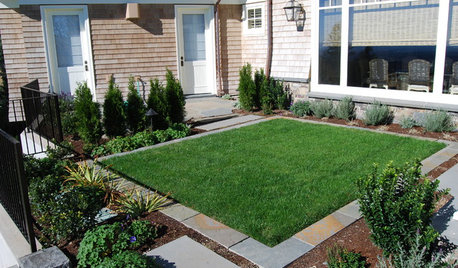
GARDENING GUIDESHow to Prep Your Ground for a Healthy New Lawn
Seed or sod that falls on weedy, lumpy soil is a wasted effort. Follow these steps to ensure that your new lawn will thrive
Full Story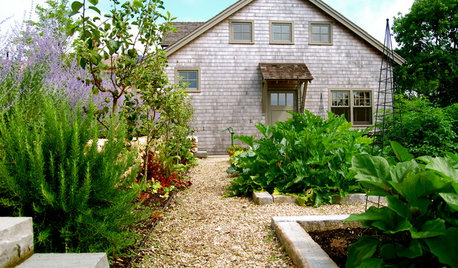
GARDENING GUIDESThe Simple Secret to Gardening Success
Learn the kinds of soil and a DIY type test to make sure you’re putting the right plant in the right place
Full Story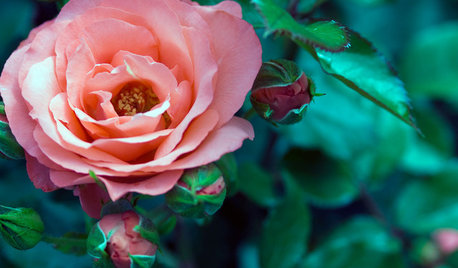
GARDENING GUIDESLearn the Secret to Bigger and Better Roses
Grow beautiful roses using both ordinary and unusual soil amendments
Full Story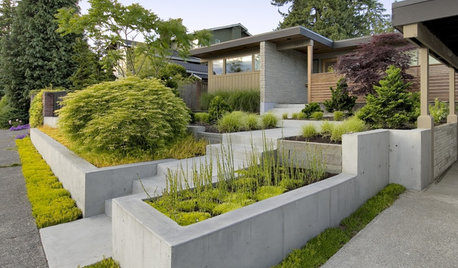
LANDSCAPE DESIGNGarden Walls: Pour On the Style With Concrete
There's no end to what you — make that your contractor — can create using this strong and low-maintenance material
Full Story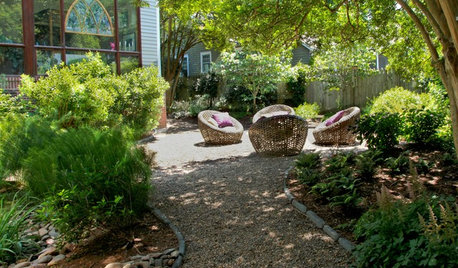
LANDSCAPE DESIGNEasy Ways to Manage Stormwater for Lower Bills and a Healthier Earth
Send cleaner runoff into local waterways and spend less on yard irrigation with these simple landscaping approaches
Full Story
GARDENING GUIDESSpring Citrus Care Reaps Months of Sweet Rewards
Learn how to tend citrus trees in spring and ways to preserve their delicious fruit
Full Story






nc_crn
VerticalGardenOriginal Author
Related Professionals
Mount Wilson Landscape Architects & Landscape Designers · Hendersonville Landscape Contractors · Kaysville Landscape Contractors · Kerman Landscape Contractors · San Benito Landscape Contractors · Soddy Daisy Landscape Contractors · Tavares Landscape Contractors · Lauderdale Lakes Landscape Contractors · Albemarle Decks, Patios & Outdoor Enclosures · Bowie Decks, Patios & Outdoor Enclosures · Dayton Decks, Patios & Outdoor Enclosures · Dracut Decks, Patios & Outdoor Enclosures · Green Bay Decks, Patios & Outdoor Enclosures · New Albany Decks, Patios & Outdoor Enclosures · Saint Louis Park Decks, Patios & Outdoor Enclosurestoxcrusadr
toxcrusadr
wayne_5 zone 6a Central Indiana
grubby_AZ Tucson Z9
VerticalGardenOriginal Author
VerticalGardenOriginal Author
toxcrusadr
TheLivingFarm
Kimmsr
VerticalGardenOriginal Author
toxcrusadr
toxcrusadr
VerticalGardenOriginal Author
pnbrown
toxcrusadr
minitrucker
Laurel Zito
VerticalGardenOriginal Author
Laurel Zito
toxcrusadr
nil13
ferroplasm Zone 7b
elisa_z5
toxcrusadr
nc_crn
david52 Zone 6
margocostas
VerticalGardenOriginal Author
wayne_5 zone 6a Central Indiana
toxcrusadr
VerticalGardenOriginal Author
toxcrusadr
wayne_5 zone 6a Central Indiana
pnbrown
jdsokol
jdsokol
Laurel Zito
idaho_gardener
Kimmsr
pnbrown
VerticalGardenOriginal Author
Laurel Zito
VerticalGardenOriginal Author
pnbrown
wayne_5 zone 6a Central Indiana
armoured
pnbrown
VerticalGardenOriginal Author